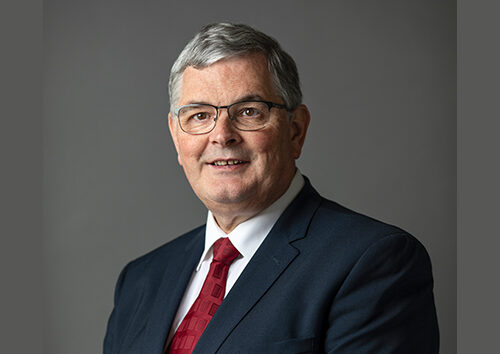12 July 2023 | Friedensau Adventist University, Germany [tedNEWS]
In April, sixty leaders of Family Ministries from the Trans-European (TED) and Inter-European (EUD) Divisions gathered at Friedensau Adventist University in Germany to explore a biblical view of sexuality. Numerous readers of tedNEWS expressed their desire for further details on the workshops conducted during the event, as well as the resources that were made accessible. Below is an overview of some of one of the workshops presented.
Dr Mihalec Gábor conducted a workshop on understanding infidelity, acknowledging that it occurs more frequently than we would like to admit. Statistics estimate that 30-50% of men and 10-40% of women will engage in infidelity at least once during their lifetime. When families are torn apart and hearts are broken, congregations often struggle to know how to respond.

Gábor observed that the initial instinct is often to quickly assign blame to ‘resolve’ the issue. However, he emphasised that passing judgment is not the most supportive approach for a struggling couple. Drawing from his therapeutic work with over 400 couples who faced infidelity, Gábor emphasized the importance of understanding as the key to healing.
Understanding doesn’t mean justifying destructive behaviour, but rather “delving into the relationship dynamics and personal factors that made the marriage susceptible to infidelity,” said Gábor.
To illustrate this perspective, Gábor explored the biblical story of David and Bathsheba (2 Sam. 11). By examining David’s early childhood experiences, issues of self-esteem, attachment, and betrayal, Gábor revealed the complexity of David’s character. Instead of viewing David solely as a manipulative sexual predator or an abusive king, Gábor urged a multidimensional perspective that recognizes the “wounded child within.”
Gábor clarified that understanding does not excuse sin or harmful behaviour. While acknowledging the impact and consequences of poor choices, the goal is to “create a safe space within the church for sinners who genuinely seek change.” Rather than labelling individuals as ‘perpetrators’ or ‘victims’, the Church needs to be an environment where “personal growth and responsibility are fostered.” Healing and restoration begin with understanding, which enables individuals to align their lives with God’s moral standards.
Rather than labelling individuals as ‘perpetrators’ or ‘victims’, foster personal growth and responsibility.
Fostering an environment of change, rather than blame, is key to helping families and protecting homes. “By providing meaningful support to individuals in their personal growth journey the church can contribute to their transformation and readiness to take responsibility for their actions,” Gábor concluded.
Residing in Hungary, Dr Mihalec Gábor wears multiple hats as a pastor, couples therapist, and part-time Family Ministries director for the Hungarian Union. He has dedicated his research efforts to the field of marriage enrichment and couple resilience. He is the author of No More Games: How to Build a Faithful and Satisfying Relationship.
[Photos: Vanesa Pizzuto].



